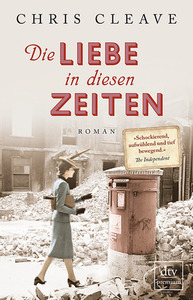You need to sign in or sign up before continuing.
Take a photo of a barcode or cover
There was some great writing here, but ultimately after reading 1/3 the book because of the rave reviews I give up. I just never wanted to come back to it to see what happens next.
This took me a long time to get through on audio, but I really loved it. Deserving of the hype, for sure.
There was so much that I loved about this book, I couldn't put it down. Themes were about bravery, forgiveness, hope / hopelessness, and British fortitude. Other theme that surprised me was racism / prejudice, and the black minstrel entertainment industry in London during the war, (which I think played out exactly, exactly, exactly right). Also there were the rejected children, the outcasts.
I couldn't put the book down and have so many quotes I want to tag.
Here are some similar, though not exact, comparisons: All the Light We Cannot See, the English Patient, also even Birdsong and the first couple of seasons of Downton Abbey (but WWII).
There is one thing the author chose to do that would never fly in America, in fact publishers and citizens are erasing our current histories because it is too painful for us. It was shocking to see/hear, and yet the point of the author was definitely emphasized. Is it true that the British were skin-color prejudiced? That in fact the whole world is and was prejudiced in one way or another? That it is not just the sin of America? (Particularly the South?) Was it alright to use the historically accurate descriptions, or does it do more harm than good? Do we try to bury the past, or do we look it in the face so that we can know we don't want to ever go there again?
On a bigger scale, I don't see younger generations read these kinds of books. Will this change? How can we be safe if we don't read these stories, too? How can we know where we are going if we don't know where we have been?
I couldn't put the book down and have so many quotes I want to tag.
Here are some similar, though not exact, comparisons: All the Light We Cannot See, the English Patient, also even Birdsong and the first couple of seasons of Downton Abbey (but WWII).
There is one thing the author chose to do that would never fly in America, in fact publishers and citizens are erasing our current histories because it is too painful for us. It was shocking to see/hear, and yet the point of the author was definitely emphasized. Is it true that the British were skin-color prejudiced? That in fact the whole world is and was prejudiced in one way or another? That it is not just the sin of America? (Particularly the South?) Was it alright to use the historically accurate descriptions, or does it do more harm than good? Do we try to bury the past, or do we look it in the face so that we can know we don't want to ever go there again?
On a bigger scale, I don't see younger generations read these kinds of books. Will this change? How can we be safe if we don't read these stories, too? How can we know where we are going if we don't know where we have been?
It was easy to connect to the characters, and I found the historical premise interesting (Britain/British forces in WWII before the U.S. entered the war at the very end of 1941). I enjoyed the character development, especially that of Mary. As with any war story, at times it was difficult to read about the horrors that were perpetrated. Likewise for the parts of the story that treated the racism that was still the prevailing mentality during the war. The only complaint about the writing that I have is, either every Brit has flawless comedic timing and impeccable dry wit, or these characters voices were all written a little too similarly.
Not my usual genre but Chris Cleave writes in such a captivating way that I couldn't put this down.
I did not just read this book, I savored it. Chris Cleave's writing has always captivated me, this book was no exception. I read and reread some passages and description and felt happy that books exist and authors like Chris Cleave write!!
I really enjoyed it, though the decline of the protagonists seemed without a fight. They were so strong for so long. Great theme.
Since it’s release, I’d been looking forward to reading/listening to this book. It had great reviews, and I love WWII based novels, so I was excited to give it a go. The audiobook only took me a week to finish, and it was attention-grabbing; unfortunately, I felt like the story fell short.
Following the lives of 4 friends: Mary, Tom, Hilda and Alastair, each of their lives change in different ways once the War begins. The glamorous life they once had is gone, and each embarks on a journey to serve and survive, hoping to find love along the way...
I thoroughly enjoyed listening to each of the characters points of views; however, I didn’t feel like the story came to any conclusion or had any growth. Maybe it was just me not paying attention to all the details, or it really was a hollow novel. Great story, I just didn’t feel like it went anywhere or had emotion blasting off the pages. Overall, an enjoyable book, though one I might forget.
Following the lives of 4 friends: Mary, Tom, Hilda and Alastair, each of their lives change in different ways once the War begins. The glamorous life they once had is gone, and each embarks on a journey to serve and survive, hoping to find love along the way...
I thoroughly enjoyed listening to each of the characters points of views; however, I didn’t feel like the story came to any conclusion or had any growth. Maybe it was just me not paying attention to all the details, or it really was a hollow novel. Great story, I just didn’t feel like it went anywhere or had emotion blasting off the pages. Overall, an enjoyable book, though one I might forget.
After just finishing Everyone Brave is Forgiven I don’t know what to think. I had to reread the last 2 paragraphs 5 times just to grasp what was happening, the ending didn’t really feel like an ending and I’m ok with that. An unexpected love story with an unexpected ending, leaving you to wonder what paths are weary travelers are going to take next and leaving a bit melancholic in the process. Seeing how I can be prone to melancholy myself I appreciate a book that caters to the mood that I am in and leaves me feeling appropriate.
Sprinkled throughout the novel was a bit of social commentary that works as well now as it did then. Commenting on what counts as bravery, is it the big gestures that we do or the little ones that count? How must is acceptable to give up for those we love and when is it best to speak up.
“We are a nation of glorious cowards, ready to battle any evil but our own.”
That quote just stuck with me while reading the final chapters, we are so often fixed on our bubble that we ignore the world around us. Were if it doesn’t happen to us then it’s not an issue, and belittle those who are woke enough to see outside themselves.
All in all, I enjoyed this book and kicking myself that it took me this long to read it.
Received book from NetGalley, just took my time getting to it
Sprinkled throughout the novel was a bit of social commentary that works as well now as it did then. Commenting on what counts as bravery, is it the big gestures that we do or the little ones that count? How must is acceptable to give up for those we love and when is it best to speak up.
“We are a nation of glorious cowards, ready to battle any evil but our own.”
That quote just stuck with me while reading the final chapters, we are so often fixed on our bubble that we ignore the world around us. Were if it doesn’t happen to us then it’s not an issue, and belittle those who are woke enough to see outside themselves.
All in all, I enjoyed this book and kicking myself that it took me this long to read it.
Received book from NetGalley, just took my time getting to it
I found this book utterly beguiling when I first picked it up. While I found Mary, Tom, and Alistair's characters all to be familiar ideations of each other, their witty banter was so delightful, I didn't mind their similarities. Then, slowly, over the course of the subsequent chapters, and in the face of significant events, their differences started to emerge and I felt I could appreciate each of them for their distinct qualities. Chris Cleave made their youth (late teens to early twenties) relatable (I didn't feel like a thirty-something reading about naive twenty-year-olds), but he also made it clear how quickly and horrifically war can completely break in and destroy that idyllic youth.
Where I started to lose the plot was shortly after a significant tragedy that strikes at the heart of their youthful trio and sends them all spiraling in different directions, two of which seemed to be half-conscious states of drifting (separately) through the rest of the war, bewildered by the incomprehensible loss they have all faced. Now, given that the realities of war are truly unfathomable—loved ones really did die in the Blitz and soldiers really did starve while stationed on Malta—I completely understand a certain level of delirium, but it also felt as though that's where the story ended... these characters coming back together, but in a half-asleep/half-awake state of complete bewilderment, uncertain (and almost unconcerned?) about whatever might happen next. I would have really liked to have seen how they turned out after the shock wore off... after they returned to some semblance of reality a bit further down the road. In the end, I can't say I really felt like it was the end.
I am considering going back and rereading the ending, just to see if I perhaps missed something or misunderstood something crucial, but I'm not sure I did. And if I didn't, I should perhaps give credit to Chris Cleave if his aim was to help readers get a personal sense of the truly bewildering and demoralizing shock of war. If that's what he intended, then he definitely succeeded in leaving me bewildered.
Where I started to lose the plot was shortly after a significant tragedy that strikes at the heart of their youthful trio and sends them all spiraling in different directions, two of which seemed to be half-conscious states of drifting (separately) through the rest of the war, bewildered by the incomprehensible loss they have all faced. Now, given that the realities of war are truly unfathomable—loved ones really did die in the Blitz and soldiers really did starve while stationed on Malta—I completely understand a certain level of delirium, but it also felt as though that's where the story ended... these characters coming back together, but in a half-asleep/half-awake state of complete bewilderment, uncertain (and almost unconcerned?) about whatever might happen next. I would have really liked to have seen how they turned out after the shock wore off... after they returned to some semblance of reality a bit further down the road. In the end, I can't say I really felt like it was the end.
I am considering going back and rereading the ending, just to see if I perhaps missed something or misunderstood something crucial, but I'm not sure I did. And if I didn't, I should perhaps give credit to Chris Cleave if his aim was to help readers get a personal sense of the truly bewildering and demoralizing shock of war. If that's what he intended, then he definitely succeeded in leaving me bewildered.







